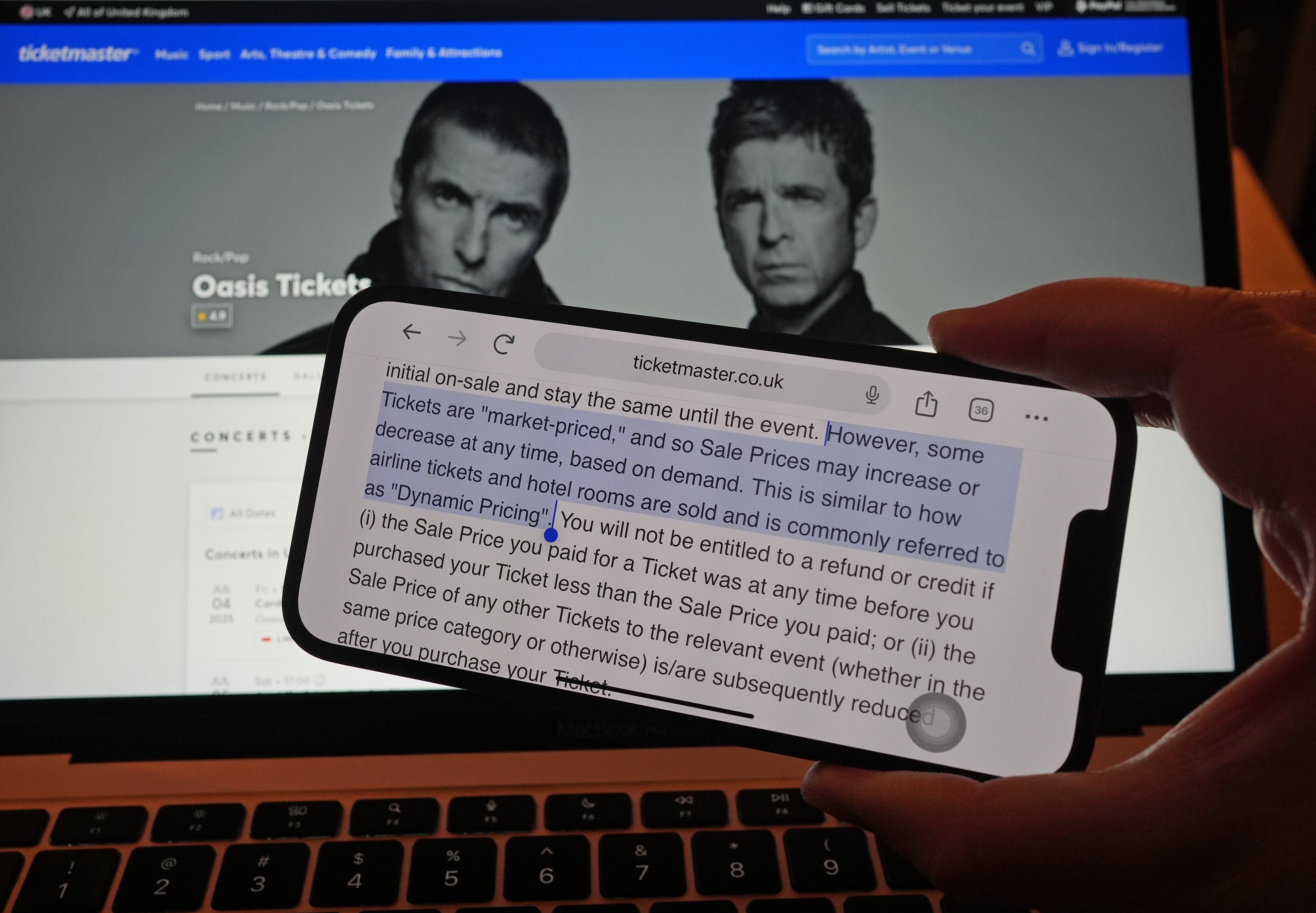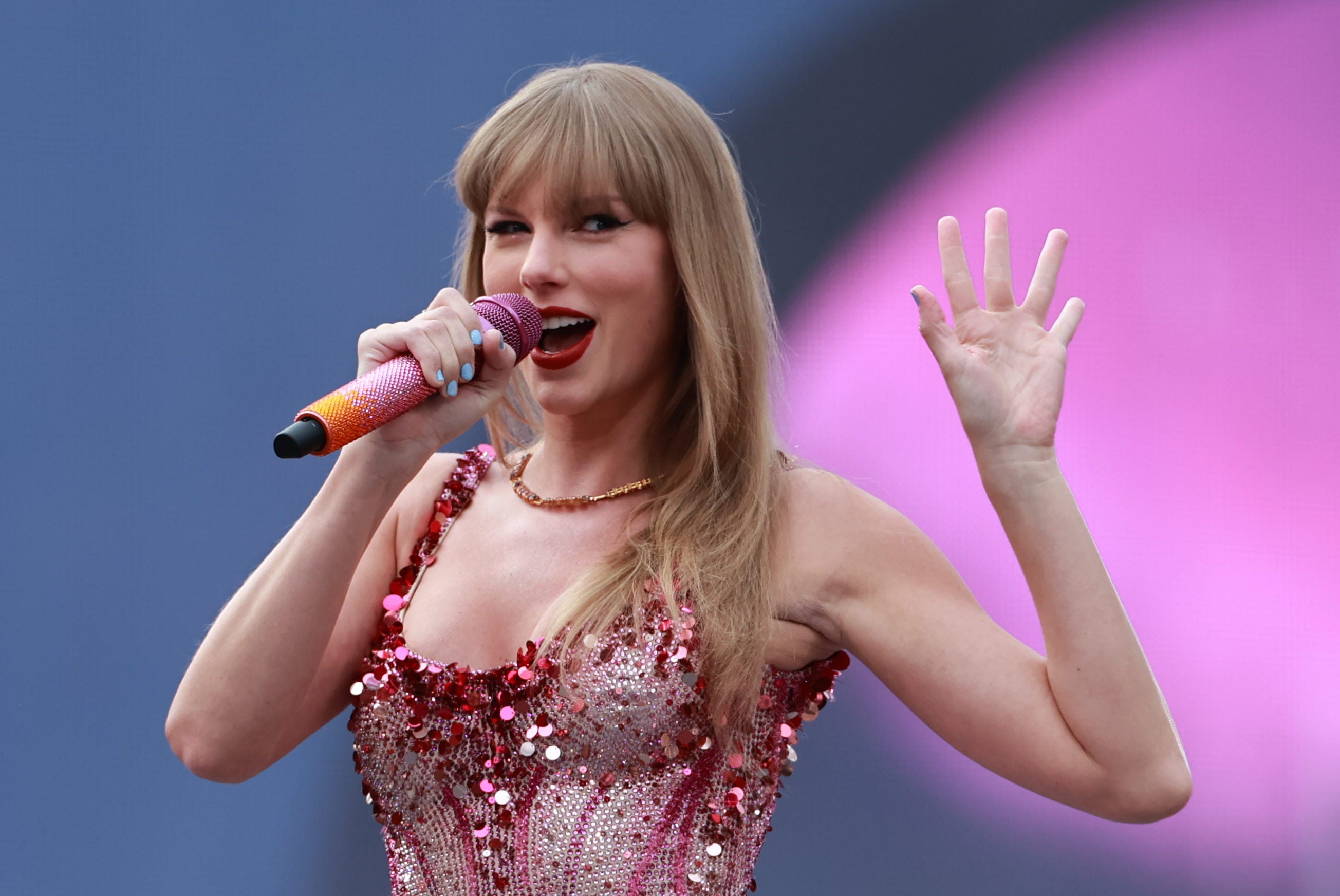Resale ticket prices to be capped after Oasis row in bid to stamp out touts
‘For too long fans have had to endure the misery of touts hoovering up tickets for resale at vastly inflated prices,’ culture secretary Lisa Nandy said
The government has announced that a price cap will be introduced on resale tickets in a bid to clamp down on touts.
A public consultation will consider the cap among a range of options to make ticket-buying fairer for fans, after concert sales for acts including Oasis and Taylor Swift were marred by touts selling tickets at hugely inflated prices.
Other fans have been caught out by a lack of transparency over “dynamic pricing” schemes, which caused standard ticket prices for Oasis shows to more than double in price, from £148 to £355, while fans were waiting in the queue to buy them.
Despite Oasis themselves warning that tickets purchased on unauthorised resale sites would be cancelled, tickets were also listed on resale sites for up to £6,000 within minutes of the sale launching in August.
The cap would apply to tickets for live events including music, sport, comedy and theatre.
Culture secretary Lisa Nandy said: “The chance to see your favourite musicians or sports team live is something all of us enjoy and everyone deserves a fair shot at getting tickets – but for too long fans have had to endure the misery of touts hoovering up tickets for resale at vastly inflated prices.
“As part of our Plan for Change, we are taking action to strengthen consumer protections, stop fans getting ripped off and ensure money spent on tickets goes back into our incredible live events sector, instead of into the pockets of greedy touts.”

Musician and DJ Fatboy Slim said it was “great to see money being put back into fans’ pockets instead of resellers”.
“[I’m] fully behind this effort to make sure more people can enjoy incredible arts and music events across the country without being ripped off. It is part of the change this government were elected to make,” he added.
According to the Competition and Markets Authority (CMA), typical mark-ups on tickets sold on the secondary market are more than 50 per cent, while investigations by Trading Standards have uncovered evidence of tickets being resold for up to six times their original cost.
Research by Virgin Media O2 suggests that ticket touts cost music fans an extra £145m a year.
The CMA has estimated the value of tickets sold in 2019 through secondary ticketing platforms to be about £350m, with around 1.9 million tickets sold on these platforms – around 5 per cent to 6 per cent of the number of primary tickets.
The public consultation will consider views on capping resale prices from the original price to up to a 30 per cent uplift, as well as limiting the number of tickets resellers can list and the maximum they are allowed to purchase on the primary market.
The measures would aim to prevent organised touts from reselling large numbers of tickets at vastly inflated prices and disincentivise industrial-scale touting.

Plans also include creating new legal obligations for ticket resale websites and apps so that they are held responsible by Trading Standards and the CMA for the accuracy of information they provide to fans.
Trading Standards can already issue fines of up to £5,000 for ticketing rule breaches, but the consultation will consider whether this cap should be increased.
Alongside the consultation, ministers have launched a call for evidence into pricing practices in the live events sector, including dynamic pricing.
UK Music chief executive Tom Kiehl said: “UK Music welcomes this move to support music fans and the music industry, which generates £7.6bn a year for the economy and supports 216,000 jobs.
“We want to see an end to speculative selling with a clear price cap that means tickets can only be resold under a fair and reasonable system of resale.
“There needs to be far tougher controls on the secondary market and the use of digital bots to protect genuine music fans and put them first to restore the integrity of ticket sales for live events.”

Jon Collins, chief executive of LIVE, the live music trade body, said: “LIVE welcomes this positive step to put fans back at the heart of live music by tackling ticket touting.
“We have been a long-term and vociferous advocate for regulation of the secondary market, supporting the great work of the FanFair Alliance, and are pleased to see government delivering on its manifesto commitment in this area.
“We are delighted that measures which permit responsible and fair fan-to-fan resale, while eliminating third-party profiteering, will be brought forward. This will reduce the incentive for touts to squeeze fans out of the primary sale and highlights the need to set the cap on resales at or near the original price.”
A Ticketmaster spokesman told The Independent: “Ticketmaster is committed to making ticketing simple and transparent. Since 2018, our resale has been capped at face value, providing fans a safe place to sell tickets they can’t use at the original price set by artists and event organisers.
“We support proposals to introduce an industry-wide resale price cap. We also urge the Government to crack down on bots and ban speculative ticket sales.”
Additional reporting by Press Association
Bookmark popover
Removed from bookmarks